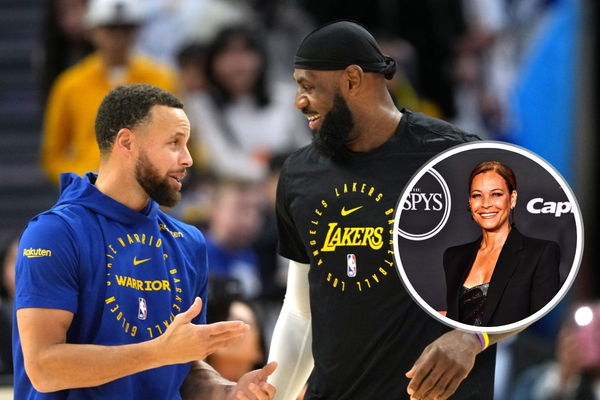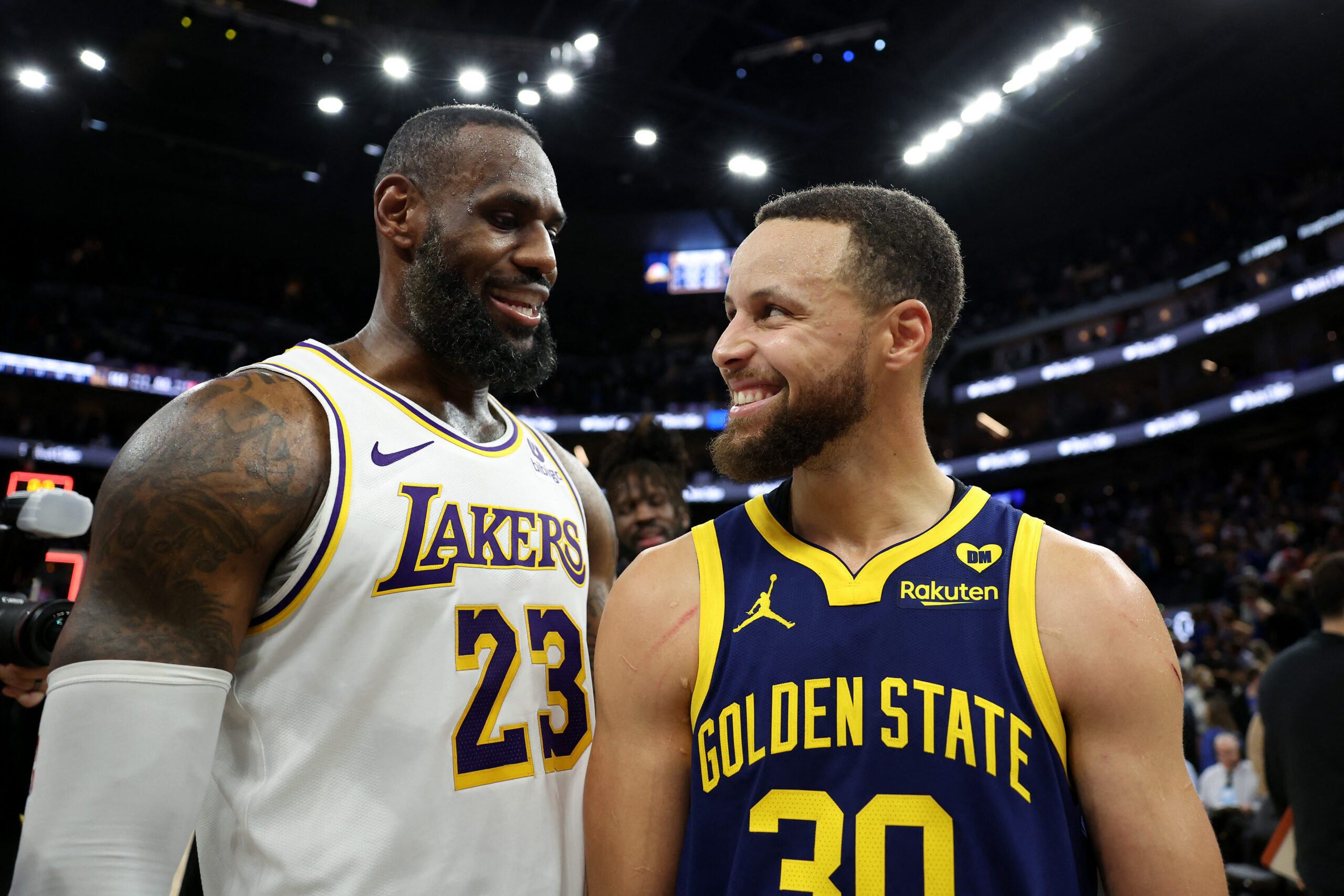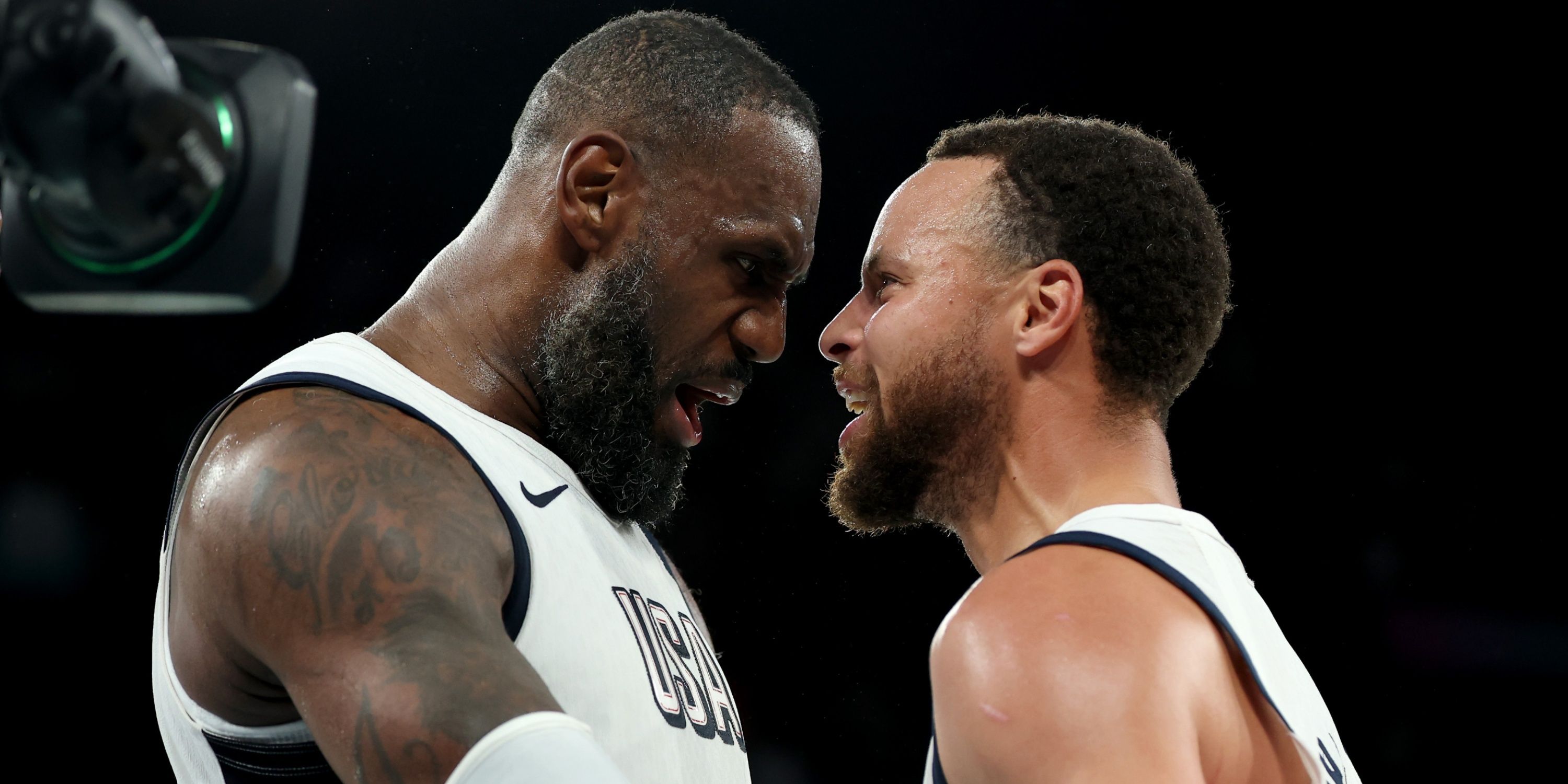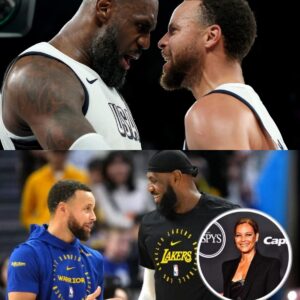“I Mourned”: Sonya Curry Warns Stephen Curry, LeBron James & Others Of Inevitable Biochemical Changes In NBA Futures
For most of her life, Sonya Curry wore many hats with grace—an accomplished volleyball player, a mother to NBA superstar Stephen Curry, and a devoted wife. But much like Ayesha Curry, the basketball matriarch has an identity of her own amidst all the star power and fame. According to the 58-year-old herself, she was “short, fast, and mean!” Sonya did not just excel in one sport.

By the time she attended Radford High, she proved herself as an excellent basketball and track star. But when life slowed down, and those roles began to shift, Sonya found herself confronting something many retired athletes and empty nesters face: an identity crisis. She also went through a depression after Sydel, her youngest child had graduated from school. During that time, Sonya had also retired from the education field.
“There was a period where I had retired from my school, Sydel had transitioned, graduated and it was just like oh, Lord, now what? They say there are seven things in your life you go through that are really, really tough and life-altering and one of them is retirement,” Sonya said in 2021. It’s a reality for the athletes and something that her son Steph, a generational basketball talent, might one day face when his own career ends. But for now, it’s Sonya’s journey that offers a raw, relatable perspective on what happens when the spotlight dims, routines change, and the quiet sets in. In conversation with Travis Hearn on The Travis Hearn Podcast, Sonya peeled back the layers of this struggle.
“When Dell retired, I actually went through this one other time before,” she shared, referring to her retirement from her 29-year career in education. “The first six months, I was excited about it, but then I’d sit in my car at the grocery store, start doing something on my phone, and just go home without even going inside. I remember thinking, ‘What is happening in my mind?’”
Sonya’s experience highlights the profound shifts retirement can bring—not just mentally, but biologically and emotionally. She likened it to being stuck in quicksand, saying, “Your body biologically gets used to waking up at a certain time, doing certain things. Biochemical changes happen within you.”

Add to that the loss of routine and community, and it’s easy to see why the adjustment feels like an uphill battle. “You know, the locker room, camaraderie, me going to school, all my teachers, parents. All that goes away and you’re like, I’m not like, closely connected to them,” she added. Through it all, Sonya leaned on her faith, learning to embrace stillness and trust in God’s plan.
Charles Barkley’s Solution for Adam Silver’s NBA Could Shut Shaquille O’Neal’s Ratings Rant, Here’s How
“The silence hits you, and God’s like, ‘Me. You know me.’ And you’re like, ‘Yeah, but where are the staff meetings? Where are the practices?’ And He’s like, ‘Exactly.’” She says, “I mourned what I was leaving,” and waited for the Lord to show her the path. Interestingly, in a conversation in November 2024, Sonya had put forward one more aspect of retirement.
As a family full of athletes, fitness is pretty much the utmost priority. In an interview with digital health communications and patient event engagement firm, Black Health Matters, Sonya Curry reflected on the challenges athletes face transitioning to self-discipline in fitness after retiring from structured routines led by coaches and trainers.
“Because we are athletes, we’ve kind of been forced into healthy lifestyles and staying fit. And we’re very competitive, you know? And even within that I want to encourage people to know that you know, when the lights are finished and you know, they retired without having somebody there to tell us what to do, we had to be disciplined and find another uh gear to get ourselves disciplined on our own,” Sonya had said. But to manage that effectively, she also has a piece of advice.

“Just start simple. So we say, ‘Keep it simple, stupid,” Sonya said. To put it straight, the Raising Fame host doesn’t believe staying active requires major changes or overwhelming commitments. “Start with something like, just get out and walk around your block. And then if you want to add exercises, just do leg lifts or do jumping jacks. Just don’t try to overwhelm yourself. Don’t say, ‘I got to get a gym membership.’ You can do it at home,” Sonya had iterated.
Her story poignantly reminds us that identity transcends performance or roles and lies in discovering purpose beyond them. While Sonya was facing these hardships, here are some tips that can help Steph after he retires.
What is the path to ease retirement blues for Stephen Curry and others?
When athletes retire, it’s not just about stepping away from the game—it’s about figuring out who they are without it. A huge part of that struggle is the loss of identity. Researchers like Taylor and Ogilvie (1994) explain how athletes can feel lost without the sport they’ve devoted their lives to. But here’s the thing: they can redefine themselves by exploring new passions or roles, like coaching or mentoring. Brewer (1993) says these pursuits can help fill the void.

USA Today via Reuters
Mental health support is also crucial in this process. As athletes face the emotional toll of transitioning, it’s important to have a strong support system. Studies, such as those by Bi Piven et al. (2019), show how therapy and mindfulness can provide valuable tools for managing anxiety and depression. Having a network of fellow retired athletes can also help combat feelings of isolation.
Athletes who take time to reconnect with themselves often find that their value doesn’t only come from their athletic careers. They discover new interests, build relationships, and find meaning in new activities. For Sonya, she found solace in spirituality. “One day at church I was just sitting there–the pastor just seemed like he’s talking to you,” she said. “There could be 10,000 people in the room and he’s like you. And he talked about if you’re tired of doing the same ole same ole, just give Jesus a try.” She continued, “And I just got up, went to the front and it was just like I can’t do this. I don’t want this anymore so Lord I’ma try you. You’ve said all that you are, let’s see. I’ma go for it.”
While it’s never an easy shift, the transition can lead to fulfilling second careers or even new ways to stay involved in the sport they love. By focusing on their well-being and embracing change, athletes can emerge from this challenging time with a new sense of purpose.

Leave a Reply